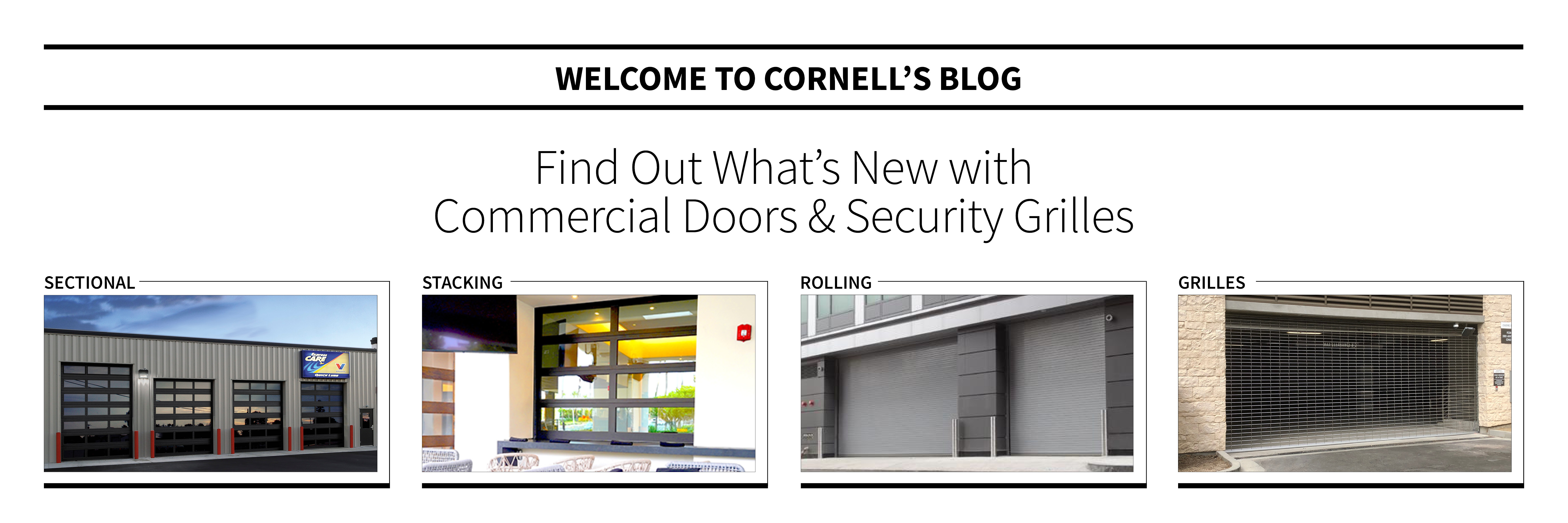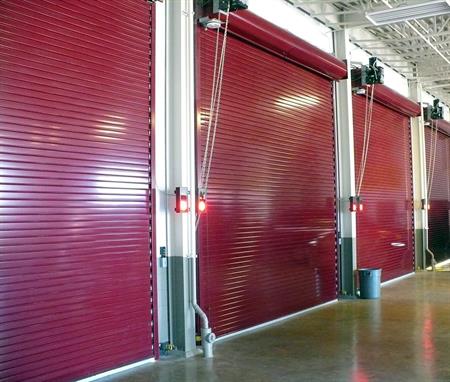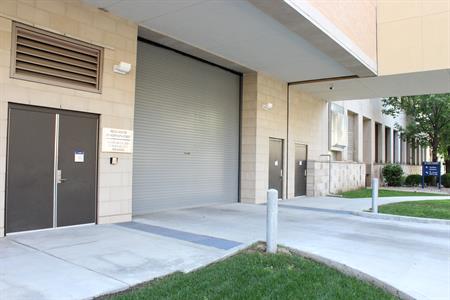

Cornell Commercial Rolling Doors and Security Grilles Blog
When it comes to Overhead Rolling Doors and Grilles, we are the experts in innovative door solutions!
Subscribe
Get updates on new blog posts to your inbox!
Guide for Rolling Door Thermal Resistance & Air Leakage
Thermal resistance is a huge factor that affects the energy performance of insulated roll up garage doors when they are in the closed position. Thermal resistance is measured using R-Value and U-Factor.
Air leakage and thermal resistance are two primary factors affecting how well insulation performs its duties. Thermal resistance is a huge factor that affects the energy performance of insulated roll up garage doors when they are in the closed position. In simplest terms, it's a measurement of how well a material avoids losing heat. High thermal resistance means less heat loss. Thermal resistance is measured using R-Value and U-Factor.
Conversely, air leakage occurs when the door is closed and involves the seals around the door, including those at the head, guides, and hood. However highly insulated a garage door is, gaps or weatherstripping in poor condition create leakage. These unintentional openings lead to energy loss and make climate transfer more challenging. That's one reason why having an authorized Cornell dealer perform regular planned maintenance is critical.

Benefits of Overhead Garage Door Insulation
While insulation isn't essential for the door's operation, it offers many key advantages for business owners. Some benefits of insulation include:
- Extra durability: The additional thickness from insulation makes doors sturdier and more dent-resistant.
- Quiet operation: Adding a layer of insulation to a roll-up door helps prevent panels from excessively rattling during movement. As a result, opening and closing an insulated door is less noisy.
- Temperature transfer management: Insulation helps keep a more consistent climate inside. This control is essential for team comfort and to protect temperature-sensitive goods.
Plus, today's lightweight insulation options do not add significant weight to the door.
The Shocking Reality of R-Value vs. U-Factor of a Rolling Door!
What Is R-Value?
R-values are a calculation that reflects the thermal resistance measurement of material. Insulation commonly uses this number to compare the rate of heat loss between products.
The technical definition of R-Value is “the inverse of the time rate of heat flow through a body from one of its bounding surfaces to the other surface for a unit temperature difference between the two surfaces, under steady state conditions, per unit area.” While that explanation is in-depth, what it actually tells you about energy performance isn't. R-values can be misleading if not interpreted accurately.

Insulated Rolling Door Myths
The most common R-Value myth is that it is the best indicator of energy efficiency for an insulated coiling door.
Insulated Rolling Door Realities
The R-value of an insulated garage door varies based on the door material, the insulating material, and depth. Generally speaking, thicker construction materials and insulating layers carry higher R-values. A steel garage door with insulation, like the Cornell Thermiser Max®, can offer sizable R-values.
Yet, the reality is that R-Value is a good measure for layers of wall insulation, not products comprised of multiple components. Measurements occur only on a single slat or section and don't take air leakage into account.
An insulated rolling door slat on an otherwise breezy roll up door assembly is the equivalent of putting a wool hat on when you’re wearing shorts. One component might be right for snow, but the whole outfit isn’t.
The same is true of commercial garage doors when it comes to insulation. While it may hold high R-values, air leakage can still occur without thorough sealing. Excess air leakage negates high R-values by allowing heat and cold to penetrate the indoor spaces. This is just like a commercial garage door that has excellent insulation but an improper seal around the roll up door guides, head and hood, which then allows for air leakage. An insulated overhead door with air leakage completely voids a high R-Value.
Plus, R-values are a calculation and not a test. Just because the specific slat or section carries a high measurement doesn't mean the entire assembly performs at that level. So, R-values don't tell the complete story. when it comes to energy efficiency.

Energy Efficient Overhead Door Fact:
U-Factor measures the rate of heat transfer, and is appropriately applied to the thermal efficiency of windows which, similar to insulated roll up garage doors, are assemblies comprised of multiple components.
What Is U-Value?
U-values — also commonly known as U-factors — often appear in insulated garage door descriptions. These numbers represent heat flow through a material. As a result, smaller U-factors are more desirable because they mean less heat will pass through the door. Insulation provides another thermal barrier to transfer heat, resulting in lower U-factors.
How Is the U-Factor Established?
Now that you understand why insulated overhead door U-values are a better energy performance indicator, let's discuss the details of it. U-Factor is a tested value of heat transfer via conduction and radiation. Unlike R-Value, the U-Factor is an independently tested value – that’s a huge deal!
Also, the testing is performed on the full assembly, not just the insulation in the slats. Both of those items make the U-Factor a much more relevant number to use when considering what rolling door to purchase. That means that air leakage is taken into consideration when testing for U-Factor. And don’t forget when purchasing your next insulated roll up garage doors, the lower the U-Factor the better!

Order Your Roll-Up Insulated Garage Doors Today
Since 1828, Cornell has been an expert in rolling doors, security grilles, and closure solutions that lead the industry in high efficiency. Create a one-of-a-kind solution with our SpectraShield™ powder-coated finishes and request a quote directly through our Architect Portal. Don't have access to our portal? Call us at 800-233-8366 or submit your specs using our online form today.
Contact Us Find a Dealer Today






